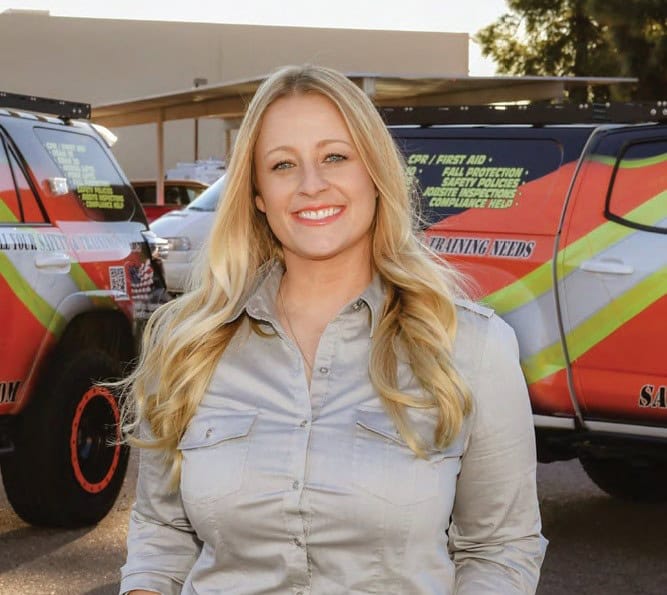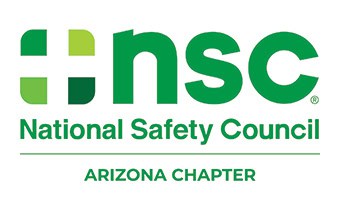
Amber Pappas is a Certified Instructor Trainer (CIT), Certified Safety Professional (CSP), Workplace Safety and Health Consultant, Authorized OSHA 1910 and 1926 trainer, and speaker who has worked in the industry for over 20 years. She is co-founder and president of Safety Help Today in Phoenix, an organization dedicated to workplace safety compliance and OSHA training. Amber is also a trainer for the Arizona Chapter National Safety Council specializing in safety training methods, the fundamentals of industrial hygiene, and job safety analysis.
From navigating a male-dominated field to revolutionizing workplace safety, Amber shares her journey, challenges, and the mission that drives her to protect workers and change the culture of compliance.
What inspired you to pursue a career in safety?
I was introduced to safety after an OSHA inspection of one of our construction crews. At first, it was a necessity rather than a choice, but as I delved deeper into the safety and health field, I became truly passionate about it. The ability to protect workers, prevent incidents, and make a tangible impact on workplace culture motivated me to pursue further education and dedicate my career to safety.
Can you share a defining moment in your career that reinforced your passion for workplace safety?
A defining moment in my career that reinforced my passion for workplace safety was witnessing firsthand the severe injuries of several workers and the tragic loss of one of our best foremen. Experiencing the aftermath of these incidents—seeing the profound impact on families and yet recognizing that workplace safety practices remain unchanged—was a turning point for me. It became clear that traditional approaches to safety were not effective and that compliance alone was not enough.
This realization drove me to take action. I founded a compliance company with the goal of developing practical, feasible solutions that not only meet regulatory requirements but also create a genuine culture of safety. My mission has been to shift the way safety is valued and implemented in the workplace—moving away from a reactive, punitive approach to one that is proactive, engaging, and truly effective in protecting workers’ lives.
What challenges have you faced as a woman in the safety industry and how have you overcome them?
One of the biggest challenges has been earning respect in a male-dominated industry. Early in my career, I often found myself having to prove my knowledge and credibility. I overcame this by continuously educating myself, obtaining certifications, and demonstrating my expertise through results. Persistence, confidence, and a focus on collaboration helped me gain trust and establish my authority in the field.
How has the industry evolved since you started, particularly for women in safety roles?
The safety industry has made significant strides since I started. More women are entering the field, and leadership roles are becoming more accessible. There is also a growing recognition of the value that diverse perspectives bring to workplace safety.
What’s one misconception people have about the safety field?
A common misconception is that safety professionals are just “rule enforcers” or obstacles to getting the job done. But safety is about problem-solving, education, and collaboration. A good safety program doesn’t hinder productivity—it enhances it by reducing incidents, improving efficiency, and ensuring workers go home safe every day.
Are there any safety initiatives or programs you’re particularly proud of leading or contributing to?
I am particularly proud of implementing proactive safety training programs that focus on hazard recognition and prevention rather than just compliance. These programs have significantly reduced incidents and increased worker engagement in safety practices.
Have you mentored other women in this field? If so, what advice do you give them?
Yes, I have mentored several women entering the safety field. My advice is always to stay confident, continuously educate yourself, and never be afraid to speak up. Networking and finding mentors can also be invaluable for career growth and support.
